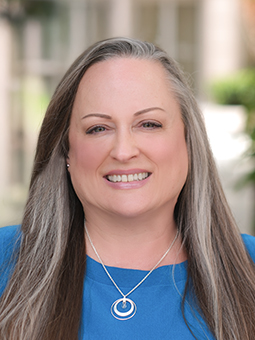
When we talk about aging, the focus often falls on longevity — how many years we live, how long we can stay healthy, or how well we can maintain independence. But length alone isn’t the full story. What often goes unspoken is the quality of those years, the emotional landscape we inhabit as we age. And central to that landscape is joy.
In her book Joyspan, Dr. Kerry Burnight reframes the conversation with a simple yet profound concept: joyspan — the number of years we live with a sense of purpose, connection, contentment, and growth. Unlike fleeting happiness, which depends on external events, joyspan reflects durable well-being. It’s the kind of emotional richness that can sustain us through change, loss, and uncertainty.
What Joyful Aging Looks Like in Real Life
At Orange County Health Psychologists, we witness this daily. Some of our most resilient older clients aren’t the ones with perfect health or untouched by hardship. They are people who continue to stay curious, find meaning in their evolving roles, and make room for both joy and grief. They write new chapters, even in the face of profound obstacles.
Take, for example, a recently retired teacher who found herself adrift after leaving the classroom. Rather than retreat, she began volunteering at a local library’s literacy program, rediscovering the joy of mentoring.
Or the example of the grandmother whose grandchildren moved away which left her feeling adrift. She spent a few months shopping churches until she found one that fit her own beliefs and then she got involved in activities at the church. By establishing a new community, she formed new and meaningful social relationships and felt a renewed sense of fulfillment.
Their stories remind us that joyful aging is less about what we leave behind and more about what we continue to create.
Personalizing the Joyspan
Joyful aging isn’t a one-size-fits-all approach. It isn’t a checklist of actions. It’s personal. For some, it means deepening a spiritual practice or reconnecting with nature. For others, it involves building friendships or revisiting creative passions. What’s important is that it matches your values, interests, and changing sense of self.
But joy doesn’t just happen on its own. It requires intention. Personalizing your joyspan starts with curiosity: What energizes you now? What relationships uplift you? What parts of yourself are waiting to be recognized or expressed at this stage of life? Aging, approached with mindfulness, offers not just reflection but also renewal.
The Role of Joy in Life Transitions
A unique and personal approach to finding joy becomes especially vital during significant life transitions. Whether navigating retirement, grieving a loss, adjusting to a new identity, or managing health concerns, grounding ourselves in meaning can fortify our resilience. That doesn’t mean denying hardship. It means remaining open to joy in unexpected forms—a moment of laughter, a spontaneous reconnection, or even the quiet satisfaction of being fully present.
These moments, while small, are psychologically significant. Research in positive psychology and CBT has shown that joy, meaning, and connectedness act as protective factors against depression, anxiety, and cognitive decline. They are not just emotional perks, but pillars of mental health. Emotional vitality, or rather, the ability to engage with life emotionally and meaningfully, is not about perpetual optimism. It’s about feeling anchored, even amid uncertainty and challenges in your new phases of life.
A Practice, Not a Prescription
 This is where the practice of joyful aging becomes not only possible, but powerful. It encourages us to make room for joy not in perfect situations but right now, just as we are. With our aches and our wisdom. With our grief and our gratitude. Joyful aging invites us to be gentle with ourselves and daring in how we continue to engage with life.
This is where the practice of joyful aging becomes not only possible, but powerful. It encourages us to make room for joy not in perfect situations but right now, just as we are. With our aches and our wisdom. With our grief and our gratitude. Joyful aging invites us to be gentle with ourselves and daring in how we continue to engage with life.
Aging is unavoidable. However, how we live those years is within our control. Let’s expand our joyspan. Let’s create space for joy at every age.
Follow Joyspan author, Dr. Kerry Burnight, on Instagram @the_gerontologist for more tips on joyful aging.
At Orange County Health Psychologists, we embrace the concept of joyful aging, with a commitment to supporting you in finding joy in your life. We also integrate joyful aging with the theory and therapies of positive psychology, which is discovering the universal strengths and virtues that lead to a greater sense of well-being and psychological health. Contact us to schedule a consultation or appointment with Hannah Le-Schroeder, Stacey Galvin, or one of many other OCHP providers dedicated to helping you embrace joy.

Hannah Le-Schroeder, LMFT
Schedule an appointment
949.504.4458
Hannah@OCHealthPsych.com
CA License #LMFT37968

Stacey Galvin, LMFT
Schedule an appointment
949.863.6538
Stacey@OCHealthPsych.com
CA License # LMFT40424

